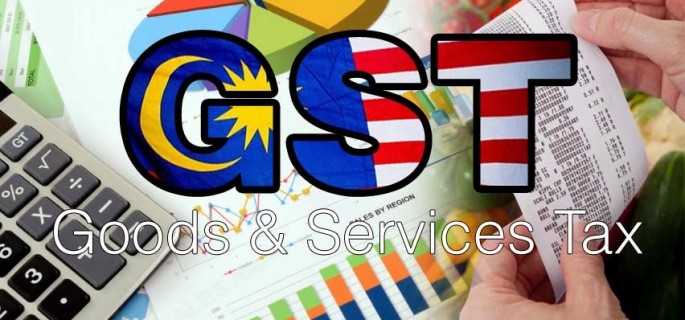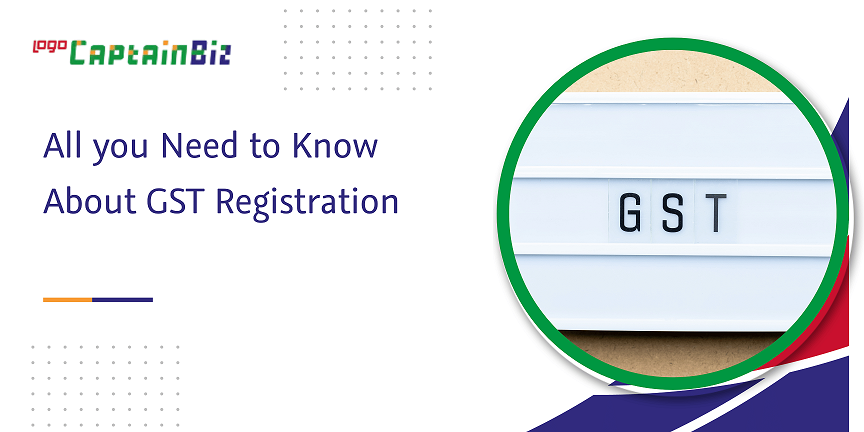Inexpensive Choices for the Best GST Registration Services in Singapore
Inexpensive Choices for the Best GST Registration Services in Singapore
Blog Article
From Beginning To End: The Ultimate Roadmap to GST Registration for Companies Looking For Financial Security
Browsing the complexities of Product and Provider Tax Obligation (GST) enrollment is an important action for services making every effort for monetary stability. Damaging down the roadmap into convenient steps can streamline the registration journey for companies looking to improve their economic standing.
Comprehending GST Fundamentals
Looking into the essential concepts of Product and Provider Tax Obligation (GST) is important for gaining a comprehensive understanding of its ramifications on services and the economic situation. GST is a value-added tax obligation levied on most products and services for domestic usage. It has changed numerous indirect taxes that existed in the pre-GST period, streamlining the tax structure and boosting simplicity of doing service in India. Under the GST system, both solutions and products are exhausted at a specific price, which is figured out based on their category. If their yearly turn over exceeds the threshold restriction established by the government, businesses are needed to register for GST. Input Tax Credit Score (ITC) is a considerable feature of GST, enabling businesses to assert credit history for taxes paid on inputs, minimizing the overall tax obligation concern. Comprehending the essentials of GST is important for services to follow tax obligation laws, handle their funds efficiently, and add to the nation's economic development by taking part in a clear tax system.
Qualification Criteria for Registration
To register for GST, businesses should satisfy particular qualification standards developed by the government. The primary eligibility requirement is that any type of service associated with the supply of goods or services with a yearly aggregate turn over above the threshold restriction established by the authorities need to sign up for GST. As of the existing policies, the threshold limitation for GST enrollment is an annual aggregate turn over of 40 lakhs for services operating within a state, besides special classification states where the limitation is 20 lakhs. Furthermore, specific services are called for to register for GST irrespective of their turn over, such as interstate providers, laid-back taxable individuals, and services liable to pay tax under the reverse charge device. It is critical for services to thoroughly evaluate their turn over and transaction kinds to identify their GST registration commitments precisely. Failure to register for GST when eligible can lead to fines and legal effects, making it crucial for businesses to stick to the specified qualification criteria.
Documents Needed for Registration
Having satisfied the qualification standards for GST registration, organizations must now ensure they have the requisite papers in location to wage the registration process effectively. The papers required for GST registration usually consist of proof of service constitution, such as partnership act, enrollment certificate, or unification certification for various kinds of businesses. Additionally, companies need to supply records developing the major business, such as a rental arrangement or electrical power expense. PAN card of the company, in addition to the identity and address proof of promoters/partners/directors, are necessary for confirmation objectives. Savings account declarations, in addition to terminated cheques or a duplicate of the bank passbook, are required to verify the monetary information supplied during registration. Services need to have digital signatures all set for the accredited notary. Making sure all these files are organized and conveniently offered will certainly expedite the GST registration procedure, making it possible for organizations to comply with tax obligation laws flawlessly.
Step-by-Step Registration Refine
Beginning the GST enrollment process entails a collection of structured steps to ensure a certified and smooth enrollment for services. The very more information first action is to go to the GST website and submit the enrollment form with precise details of business entity. Following this, the candidate obtains a Short-term Reference Number (TRN) which is used to return to the application process if it's not completed in one go.
Following, all required documents based on the checklist provided by the GST portal need to be submitted. These documents commonly consist of proof of organization address, enrollment and identification proofs of promoters, financial declarations, and organization entity's frying pan card.

Post-Registration Compliance Standards

Conclusion
To conclude, companies looking for monetary stability should understand the essentials of GST, meet qualification standards, collect needed papers, comply with the step-by-step registration procedure, and adhere to post-registration standards - Best GST registration services in Singapore. By sticking to these steps, businesses can make certain conformity with tax obligation guidelines and keep economic security over time
In addition, specific companies are required to sign up for GST regardless of their turn over, such as interstate providers, informal taxable persons, and services accountable to pay tax obligation under the reverse cost system.Having met the qualification requirements for GST enrollment, services should currently ensure they have the requisite records in location to continue with the registration procedure effectively. visit this web-site The records required for GST enrollment usually include proof of business constitution, such as partnership act, registration certification, or incorporation certification for various types of organizations. Additionally, services need to supply documents establishing the major place of organization, such as a rental agreement or power bill.Beginning the GST registration process includes a series of structured actions to make sure a seamless and compliant enrollment for companies.
Report this page